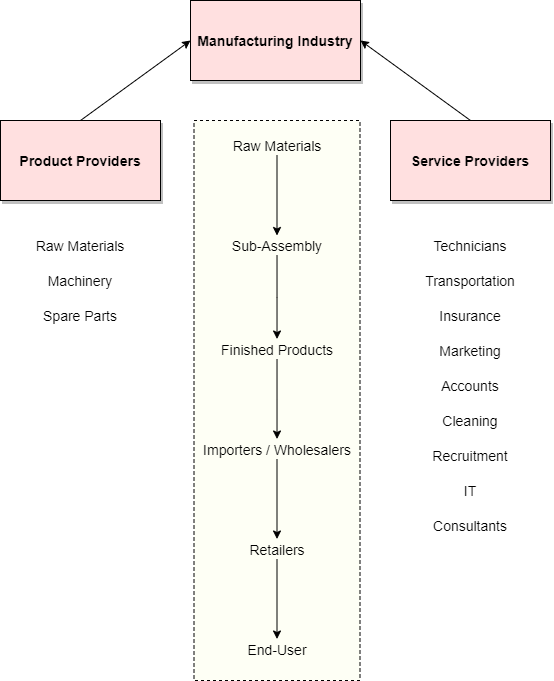Contrary to popular belief, ISO 9001 guidelines are not meant to be used by the manufacturing industry alone.
In this blog post, STEP debunks the popular myth that ISO only works in manufacturing, and prove that ISO 9001 quality management systems can be used by companies in any industry, even service organisations.
What is ISO 9001?
Here’s a concise definition:
ISO 9001 is an international standard that provides guidelines for the implementation of a quality management system in an organisation.
There’s a lot of meaning to unpack in that statement, so let’s break it down into the most important bits and examine them more closely:
- International: ISO applies equally to companies across the world
- Standard: It is a set of voluntary guidelines that companies agree to follow
- Quality: The ability to meet the expectations of the customers consistently – every time and with every interaction
- Management System: A framework that informs the strategic decisions made by a company to manage operations and improve its performance
Guidelines For Dealing With Clients And Suppliers
In practical terms, ISO 9001 is meant to provide practical guidelines that any company – including service providers – can use to meet and exceed the needs and expectations of both clients and suppliers, by treating them as interested parties or stakeholders of the company.
This focus on clients and suppliers is what makes ISO 9001 a universal standard, which can be applied seamlessly across all industries and sectors. Every company has to deal with clients and suppliers, so regardless of what kind of business it engages in, the basic quality principles involved in managing these relationships remain constant.

For a manufacturing company to perform its process of transforming raw materials to finished products that arrive at the end-user, it needs several Product Providers and Service Providers. Each business will have their own internal processes that follow, and all of them can achieve ISO 9001 certification.
Expectations of the clients
- To identify the clients as a major stakeholder of the company (interested parties)
- To have a clear strategy of the company that puts the client and the respective satisfaction of the customer at the forefront of the vision of the company (quality policy)
- To identify any risks for the company that can hinder the consistent delivery of the service/product to the client (risks and opportunities)
- To identify any opportunities for improvement within the company to enhance the customer satisfaction (opportunities and improvement)
- To communicate and provide clear instructions to the client (communication, service agreement)
- To ensure competent people form part of the company that are able to understand the needs of the customer and subsequently communicate and deliver of the service/product to the client (competence)
- To use adequate tools and equipment to increase the efficiency of the works (infrastructure and equipment)
- To be able to manage any customer complaints (non-conformities)
- To ensure adequate processes in place to be able to meet the customer needs by delivering what you promise (service requirements)
Expectations of the suppliers
- To give the correct image of their brand/products (quality policy)
- To comply with any legal obligation (legal requirements)
- To ensure adequate processes in place to increase sales (service requirements)
- To communicate with the supplier in the required time frame by providing the necessary information (purchasing process)
- To have a robust process to manage any complaints related to the suppliers (non-conformities)
- To verify the effectiveness of internal methodologies with the aim to improve the efficiency of the company (internal audit)

Applying ISO 9001 To Your Service Business
A service organisation can substantially improve its competitiveness and increase market share by implementing a quality management system that is based on ISO 9001.
You don’t have to be a huge corporation to take advantage of this effect.
Even small- to medium-sized service organisations, including consultants and professional agencies such as accountants, lawyers, architects, and marketing firms can benefit from following the practical guidelines offered by ISO 9001.
All that is required is the willingness to engage in discussions with interested parties and stakeholders, and to take the decisions and implement the procedures that are needed to set up an effective quality management system in your organisation.
By providing expert advice, training material, and audit preparation, STEP is able to guide managers of service companies through the four key stages of implementing a quality management system:
- Deciding to implement ISO 9001
- Planning an approach for your company
- Designing a quality management system
- Managing documentation
STEP makes it easy for a service-oriented business to begin integrating the benefits of a management system that adheres to ISO 9001 quality standards in its daily operations, including increased efficiency and effectiveness.
Taking It To The Next Level
There’s a fifth step that organisations wishing to take their efforts to the next level can pursue.
Service companies can become officially certified by having their quality management system audited and certified by an independent body. This enables them to use their ISO 9001 credentials to better position themselves as leaders in their industry.
While certification is not an obligatory component of ISO 9001 – in fact it can be implemented simply for the benefits it brings internally and when working with customers and suppliers – many organisations choose to become certified because it is an independent proof and validation of their commitment to offering a quality service that is centred on customer satisfaction.
For those service organizations that wish to have their quality management system audited and certified by an independent body, STEP also helps them on getting certified and, after certification, providing them with advice on working with external auditors and consultants.





